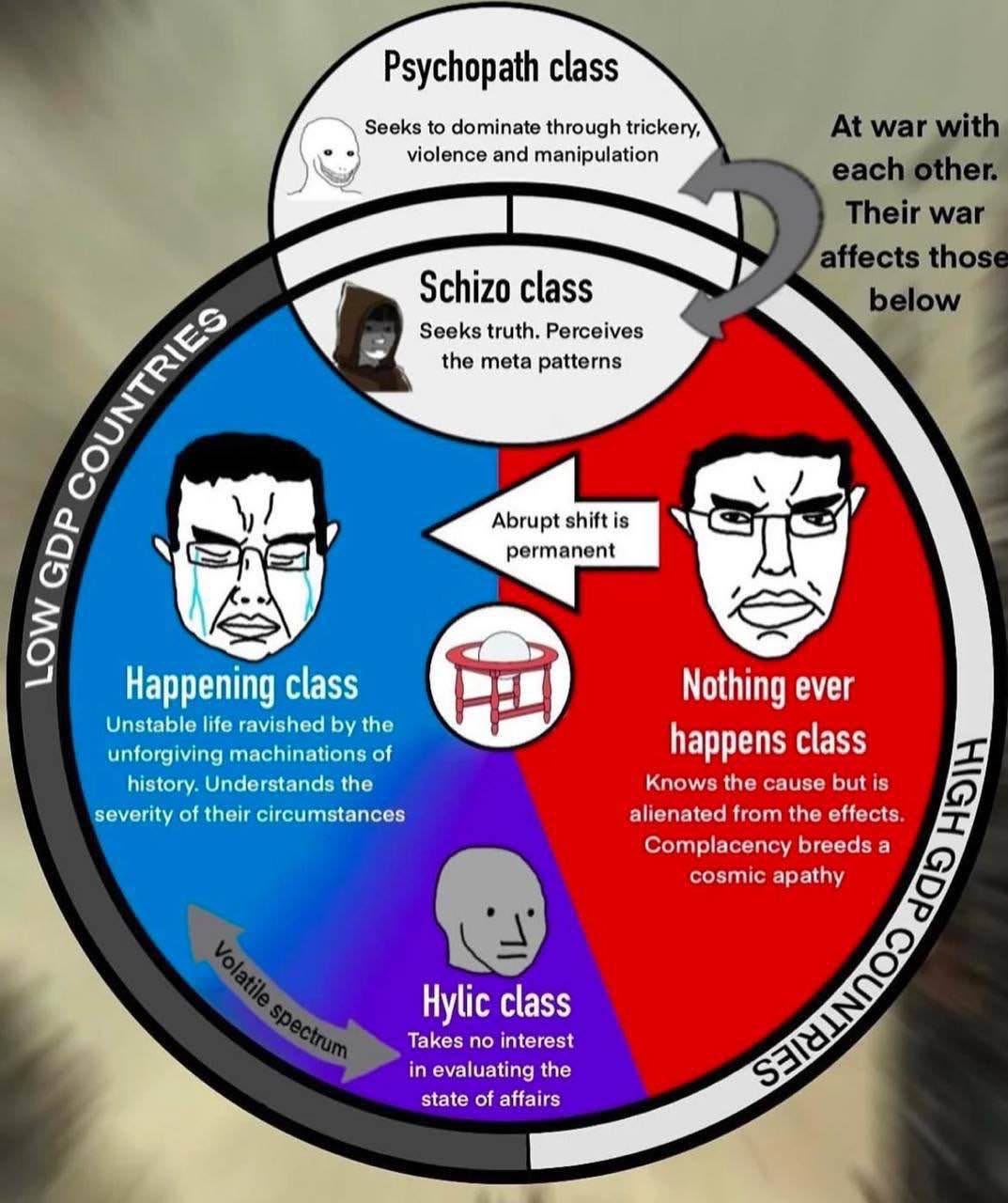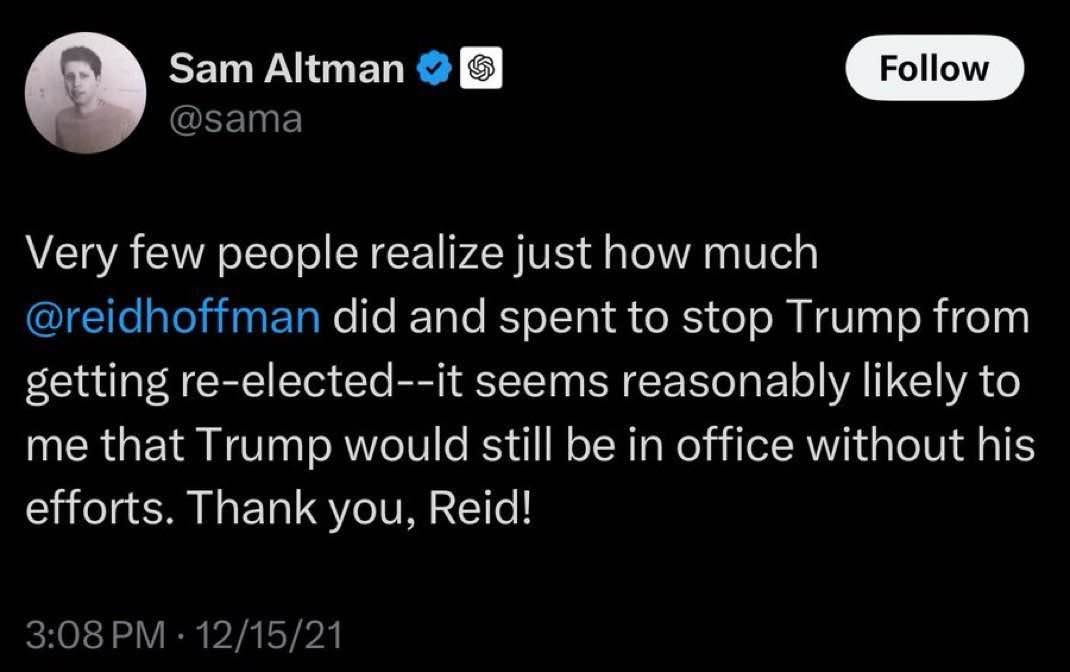Browser's Castle
Annals of Posting
In my predictions for 2025, I made a note about how I thought
The “internet of blogs” returns as the X algorithm becomes too sensitive to Elon
and was told this was “fairly optimistic” by a couple of friends of mine. However, a couple curious things happened since, which kind of boggled my mind. First, I saw that the New York Times of all publications ran an interview with Moldbug
and a couple days later, Ross Ulbricht of Silk Road fame was pardoned. To me, this is as pure a sign of the “internet of blogs” of yore breaking containment, which is understandable given that the current vice president was a participant himself.
The mawkish mocking of Vance by the “literati” belies the fact that these people truly have no idea what they’re encountering, as evidenced by some of the Q&A:
The standard mainstream journalist brain, liberal or conservative, is not programmed to deal with esoteric takes delivered by intelligent people who spend their free time discussing endless hypotheticals and outlining theories. Mandela has a Hollywood movie valorizing him, so he is Good. Islamophobia is Bad, so any terrorist whose actions align with it must be Bad as well. When everything must fit into a “correct” way of thinking, heavy credence is given to those with the “best” credentials — academics from Yale, NYT journalists, Nobel Winners, and other “experts” that are anointed by having “words in” a gamut of notable publications. And, for many years, this is how the narratives actually worked — for most of my life, as a matter of fact. Frenetic discussion was relegated to the outskirts of the internet between “anons” who were either fully cloaked other than writing style or went by screenname pseudonymous and populated IRC and blog comment sections. Put simply, nobody expected any of this to be read, let alone become an “approved” discussion topic in the mainstream, and I largely think that the general populace has no idea what they’re about to discover.
I’ll offer a bit of personal history here, as perhaps one of the youngest people (being in late 20s) to have a pretty clear idea of how this has progressed since I first got online in 2004. Ever since I got my first laptop, my life has been perpetually online first and foremost for the past two decades. Under the guise of studying chess, my entire life has been scrolling, reading, chatting, and generally being “aware” of what goes on in the murkier corners of the internet in a manner that circumvents what I now know “COPPA” was supposed to prevent. It’s why I am not a hardline anti-screentime person, because in many ways, if I didn’t have the internet, I might have imploded out of sheer boredom in grade school. (Though the internet I grew up on doesn’t exist anymore). Indeed, my current life is pretty much a continuation of what I enjoyed doing most when growing up:
Something you learned when scrolling the “old” internet is that almost everything you glance through is meaningless, toxic, or worse. My love of literature in no small part comes from 4chan’s /lit/ board, where even though it was “slow” and “curated”, you’d get plenty of comments ranging from mundane to overtly offensive and everything in between. Amidst this, you’d get ultra high quality discussion between hobbyists, auteurs, and random brilliant people alike. A style of reading develops where you skim frequently and don’t process 90% of the crap that goes on to find the quality commentary. Naturally, this heightens your reading speed and changes the way you think, and it’s certainly not a manner of interaction and synthesis that’s possible for everyone. The offensiveness and obtuseness are intentional because it automatically filters the types who can’t keep up/would call things “-ist” and try and shut down discussion out. Thus, to even engage with the people posting this kind of content, a certain strain of ADHD (it’s no coincidence chatrooms are filled with manically responsive individuals), generalist knowledge, and thick skin was needed. And frankly, it’s the most addicting thing on earth — every day I log on, I am immediately doused with ten different threads of thought to sort out. A chinese meme describes the dynamics of an active chatroom full of idle hands quite accurately:
Thus the form of the “online right” starts to take shape — the only real shared ideology is hating the idea of things being censored or deemed “offensive” and banished from discussion. Naturally, this overlaps a lot with libertarian ideals, which is why Ross Ulbricht was something of a cause celébre amongst the official party. Hilariously, this is what finally got the Libertarian party to unite around an actual party with a chance of winning.
The thing is, normal people are actually being exposed to this now, and it will become starkly clear how much brainpower was relegated to these channels. For Trump to win, an uneasy alliance between the “tech right” (which amounts to people who just hated California progressivism and agency heads blocking acquisitions), “Conservative Inc” (think-tank types who post/mobilize against DEI/culture war stuff), and a lot of traditional GOP demographics who are going to experience what being “in power” actually means beyond the old establishment. But none of these types have ever really thought about what the “right” actually means in the current day and age — the tech right amounts to a quasi- “say the right things” libertarianism that results in the catastrophic failure of San Francisco, and “Con Inc” boils down to bootstraps that don’t quite grasp the reality that the current economy and rates environment is the most competitive and levered time it’s ever been to be a fresh graduate, as anyone who followed the “Panda Express” discourse might have observed. The fact of the matter is, the “online right” has nearly a 20 year head start on theorizing about how an alternative structure to “Our Democracy” might work, and it’s so fast-paced that the normal “source please?” types will simply never be able to catch up.
As Yarvin notes, it’s kind of odd that he’s being read, because it’s not supposed to be read “seriously”, but rather as sort of a launchpoint for greater discussion. His writing is exemplary here because it requires a fair bit of intellect, an ultra wide knowledge base, and a superhuman level of patience to get through his intentionally-grating prose. You’re not supposed to read everything and chase down every detail — you’re supposed to avoid being granular and form thoughts based on concepts. The manner of thinking is “it makes sense if it makes sense”, which anyone skilled in thinking theoretically should recognize: the best thinkers work backwards from how things should be, then find the argument for their statement afterwards. This is true for internet discourse, SCOTUS (just think about how Marbury v Madison had to happen in the exact manner it did, and how it was justified), math, experiment designs in the sciences, etc. Current-day journalists and academics are outright incapable of thinking in this manner, as is anyone downwind of them, because the concept of intuiting from priors has been shunned for so long. (Yes, I do my own research.)
That being said, nothing that has been done on these parts of the internet has amounted to all that much — for the time being. Obviously, the effective altruist/p(doom)/rationalist stuff has quite a lot of influence in the tech world, but that’s not “online right”, which has never actually been considered a serious influence on much of anything, but more of a way to wile away the time in a fun and intellectual manner. True posting is going to be the new meta, though, which is why I’m spending time outlining my thoughts before I move forward.
The only reason any of this is occurring is because of Elon Musk’s purchase of X:
Twitter —> X got the ball rolling, Trump’s (first) failed assassination accelerated it, and his election victory completely destroyed the normal framing of discourse that many of us online-types have gotten accustomed to in the post-2016 world. And with this comes the fact that people are re-orienting themselves as to what’s okay and not okay to post.
And what has resulted is an environment where the normal doublespeak and machinations of the mainstream machine does not work. For example, there is absolutely no way Gavin Newsom or the LA Mayor are going to finagle their way out of the state they “manage” literally burning down.
As outlined by the chart above, things are happening, and it’s because we are in a “schizophrenic vs psychopath” meta, and X is a turbocharged tool for anyone who has the sufficient attention to detail and pattern recognition ability to string things together. In essence, the “online right” posters are literally perfect to re-orient how people think about things, as evidenced first by the H1-B discourse and then the Panda Express convos.
The people who “win” the narrative will be the ones who manage to simplify and frame the frenetic discussions being had in a concise manner. It won’t be mainstream media, but it’ll probably be one of Con Inc or the Tech Right.
Even though I have been remarkably consistent in my thoughts to the point of refusing a traditional career, I am not a fan of litmus tests. People who endlessly judge by purity tests and litmus tests don’t get how the game is played or haven’t hit the real stakes. This is why the GOP establishment has perpetually been the Washington Generals. Nobody takes stances and loses, because it’s much better to be controlled opposition for re-election and collecting donor money. Actually doing things gets you fired! However, it is very obvious when people are being disingenuous and suddenly “saying the right thing”, whether it’s a senator and late night show host being “based” but still fully aligning with the progressive left or tech luminaries suddenly kowtowing to the emperor having heavily counter-signalled in the past.
Politics has always been a means to an end, but accelerating without defining the parameters with which we think about has disastrous consequences if the people at the top simply haven’t done the requisite thinking. Thus, the conclusion is obvious — if you have ideas, no matter how formed or densely thought out they are
, you have to post. Until the dust settles, this is an all-time high in the conceptual volatility index, and everyone involved is scrolling nonstop — if you don’t try it out now, it’s never going to happen.
Going forward, I’m going to try to post my longer X threads on Notes, because I’d like an actual discussion to take place from a perspective beyond people whose ideologies I’m familiar with. I promise I read every comment on the posts as well, I have just had a huge backlog of things to take care of (mostly taxes and paperwork) after the new year. I won’t be writing primarily about politics — I have posts about AI agents and law, watches, personal finance, and more on the docket — but frankly, not that much else is going on outside of the new administration shifts in the market. And as the proprietor of Post Club, I’ll be writing much more frequently as well in the coming months.













